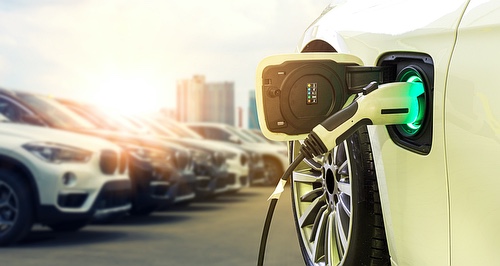Make / Model Search
News - General News - Electric VehiclesHigh Court axes Victoria’s controversial EV taxTAX AXED: The High Court of Australia this month found that Victoria’s electric vehicle tax is unconstitutional as only the commonwealth can impose a duty of excise. Victorian EV owners to be refunded after High Court rules EV road charge unconstitutional18 Oct 2023 By NEIL DOWLING VICTORIA’S contentious electric vehicle (EV) tax has been found unconstitutional by the High Court of Australia after two Victorian EV owners brought a challenge against the state.
The tax, introduced in July 2021 at between 2.3 and 2.8 cents per kilometre, was challenged by EV owners Chris Vanderstock and Kathleen Davies.
Victoria’s electric vehicle tax was found to be unconstitutional by the High Court as only the commonwealth can impose a duty of excise.
In its summary, the court said that section 7(1) of the Victorian government’s Zero and Low Emission Vehicle Distance-based Charge Act 2021 (Vic) (“the ZLEV Charge Act”) “is invalid on the basis that it imposes a duty of excise within the meaning of section 90 of the Constitution”.
“Section 90 relevantly provides that the power of the Commonwealth Parliament ‘to impose duties of customs and of excise’ is ‘exclusive’ of the powers of the States and self-governing Territories,” it states.
The decision will affect the proposal by the NSW government to introduce a road user charge for EV owners from 2027. NSW proposes a tax on EVs from July 1, 2027 “or when EVs make up 30 per cent of all new vehicle sales, whichever comes first”.
The charge would be indexed to the consumer price index each financial year. NSW recently announced it would this year drop its $3000 subsidy on new EV purchases.
South Australia was also to introduce an EV road-user tax but repealed it in February this year.
Equity Generation Lawyers senior associate David Hertzberg, who represented the drivers at the High Court, said it was “a landmark constitutional decision”.
“Today’s judgement means that Victoria’s electric vehicle tax is invalid. It also sets a precedent which will likely prevent other States from implementing similar legislation,” he said.
Plaintiff Chistopher Vanderstock, a nurse manager, said he believed the tax discouraged people from buying EVs “and punished existing EV owners who are trying to do the right thing”.
“It was an ad hoc, piecemeal policy which undermined our collective efforts to reduce emissions from transport,” he said.
“We hope that today’s decision is a step in the right direction towards a cleaner, lower emissions future.”
The Victorian Automotive Chamber of Commerce (VACC) said the High Court decision to stop the Victorian Government from charging low-emission vehicle owners a per kilometre tax was a win for Victorian motorists.
VACC CEO Geoff Gwilym said a national system is best.
“We need a system that treats drivers fairly. VACC calls for a system that encourages drivers into electric vehicles rather than punish them,” he said.
VACC never supported a stand-alone state-based system and the VACC said the federal government is yet to announce a national road-user charging system.
“Australian motorists deserve a coherent and fair national road user charging policy for zero and low-emission vehicle adoption in our transition to a cleaner fleet,” he added.
The Electric Vehicle Council (EVC) said the Victorian decision was “a win for Australian motorists, a win for the environment, and a win for the national interest”.
It said the High Court ruling was likely to prevent other states from pursuing plans to introduce road user charges on electric vehicles.
EVC chief executive Behyad Jafari said the High Court ruling would pave the way to better policy across the nation.
“There is nothing inherently wrong with road user charges, but they should never be calibrated to discourage the take up of electric vehicles,” said Mr Jafari.
“The electric vehicle industry warned the Victorian Government this policy was muddleheaded years ago, and the offer has always been on the table to work with the state on a more sensible approach.
“Any road user charge scheme should be national, and we now look forward to working with the federal government on sensible road funding reform, without singling-out drivers who are trying to do the right thing.”
He also said that the Victorian government must now consider how it will reimburse EV owners who have already paid the charge.
Commenting on the court’s decision, Motor Trade Association SA/NT CEO Darrell Jacobs said the federal government must now take action to ensure EV owners contribute to road user charges, just like any other motorist.
“All road users must pay their way on our roads,” he said.
“Electric vehicle owners in South Australia do not contribute to road user charges which are collected as an excise in fuel prices and contribute to infrastructure and road maintenance,” claimed Mr Jacobs.
However, the Parliamentary Budget Office clearly says “the principal purpose of fuel excise is to raise revenue for the budget”.
“Every motorist benefits from this critical investment so it only makes sense that everybody contributes towards it,” added Mr Jacobs.  Read more |
Click to shareGeneral News articlesResearch General News Motor industry news |










Facebook Twitter Instagram